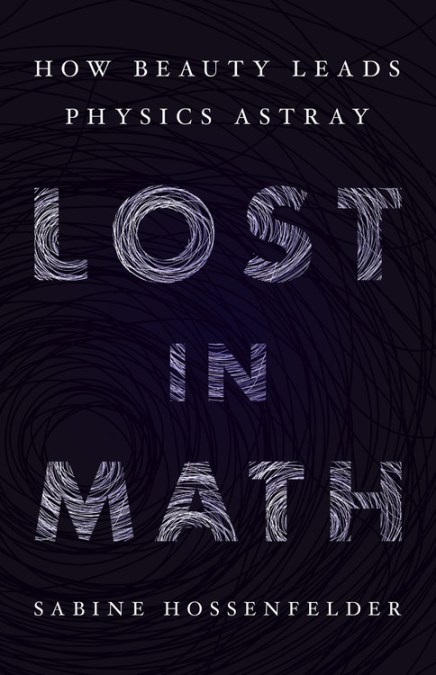 Science writer David Appell suggests this, in all seriousness, in his review of Sabine Hossenfelder’s Lost in Math: How Beauty Leads Physics Astray, at Physics World:
Science writer David Appell suggests this, in all seriousness, in his review of Sabine Hossenfelder’s Lost in Math: How Beauty Leads Physics Astray, at Physics World:
Hossenfelder confronts physicists to ask them why their ideas aren’t working. Michael Krämer, who heads the new-physics group at the LHC and works on supersymmetry, tells her that he is “honestly confused”. He adds, “I thought something must happen. But now? I’m confused.” She travels to the US to show up at the offices of luminaries including Nobel laureates Frank Wilzcek and Steven Weinberg. She considers Weinberg the greatest living physicist – his office in Austin, Texas is half the size of hers, she notes, “an observation that vaporizes what little ambition I ever had to win a Nobel prize”. While he gives her a near-perfect lecture on all his various musings and ideas – including saying that he’s had “a whole career without knowing what quantum mechanics is” – he too is disappointed in the dearth of new particles from the LHC. In the end he grows hoarse and ends her visit by walking out of his own office.
Perhaps physics has slipped into a post-empirical era, beyond our technical abilities, with ideas judged by what ex-physicist now-philosopher Richard Dawid calls “non-empirical theory assessment”. Hossenfelder shudders at such talk. “I can’t believe what this once venerable profession has become,” she writes. She criticizes bias in the funding arena, when scientists work on what’s in vogue to keep the grant money flowing. “Almost all scientists today have undisclosed conflicts of interest between funding and honesty.” That’s startling if true, but who doesn’t wonder?David Appell, “The trouble with beauty” at Physics World
Incidentally, he also tells us, “Hossenfelder has had a nomadic career of short-term research positions, but it would be good if she could find a permanent home and some security. Today’s theoretical physics needs a few malcontents asking questions that other scientists only ask themselves.” In the present state of affairs, it is hard to know whether that wouldn’t be worse for honest reporting.
See also: Sabine Hossenfelder: Free will is compatible with physics